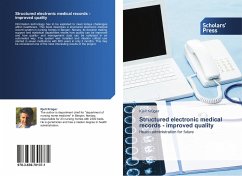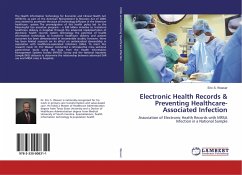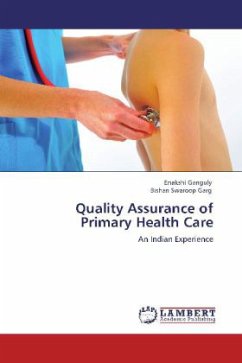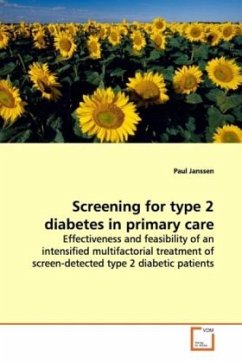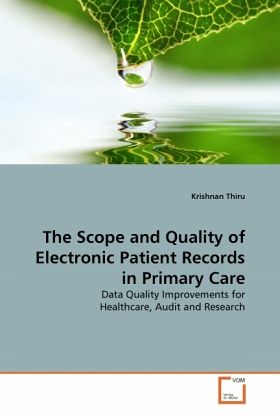
The Scope and Quality of Electronic Patient Records in Primary Care
Data Quality Improvements for Healthcare, Audit and Research
Versandkostenfrei!
Versandfertig in 6-10 Tagen
52,99 €
inkl. MwSt.

PAYBACK Punkte
26 °P sammeln!
The Electronic Patient Record (EPR) is set to replace the paper-based longitudinal clinical records used across health systems. We have seen massive improvements in health services such as in the Veterans Association, USA due to such computerisation. In primary care, the UK is a leader in EPR usage and is virtually completely computerised. The quality of data within these systems is central to the success of EPRs. The data quality agenda is underpinned by the need for information to support evidence-based care at the patient and population level. Focused on the both clinical and population per...
The Electronic Patient Record (EPR) is set to replace the paper-based longitudinal clinical records used across health systems. We have seen massive improvements in health services such as in the Veterans Association, USA due to such computerisation. In primary care, the UK is a leader in EPR usage and is virtually completely computerised. The quality of data within these systems is central to the success of EPRs. The data quality agenda is underpinned by the need for information to support evidence-based care at the patient and population level. Focused on the both clinical and population perspectives, the aim of this book is to establish the scope and quality of primary care EPR data and assist in solving the central emerging issue; the need to establish effective electronic disease registers which can then go on to ensure effective implementation of clinical quality assurance initiatives. This book aims to increase our understanding of healthcare data quality issues and in turn enable clinicians, managers and informaticians to promote good quality care provided to the individual patient and more widely to populations at large.



